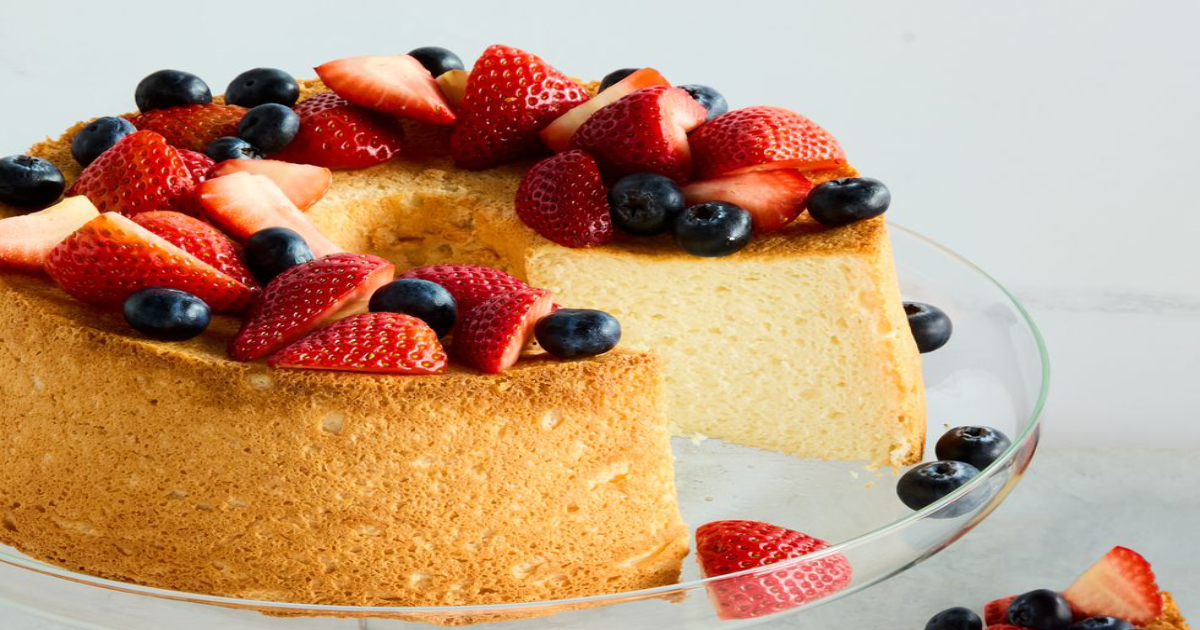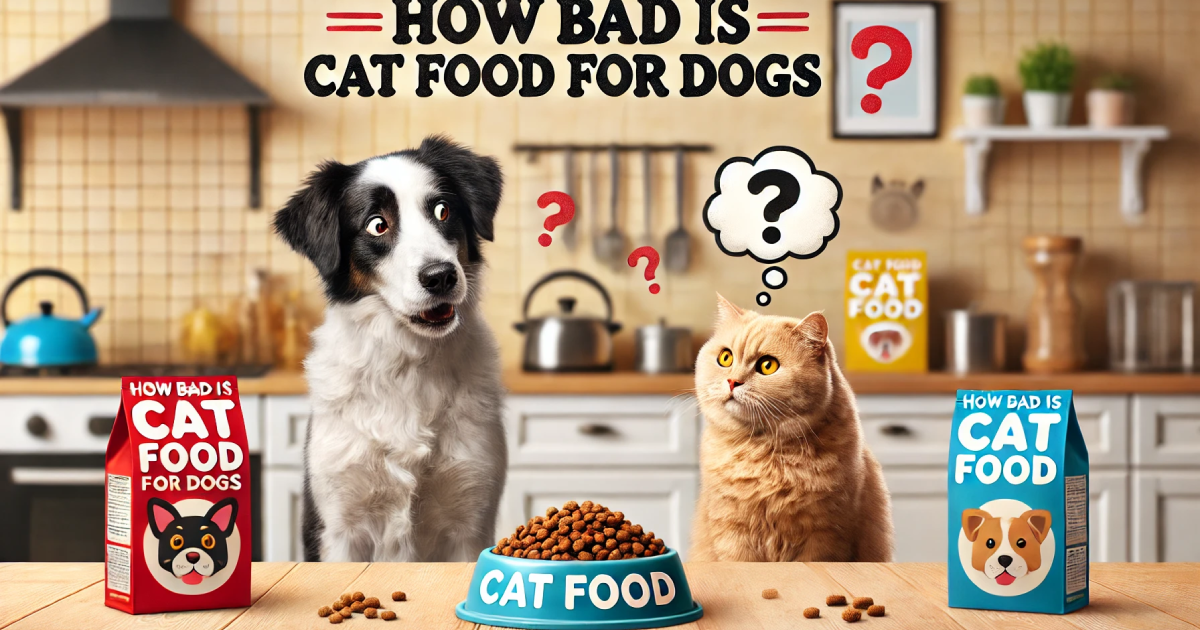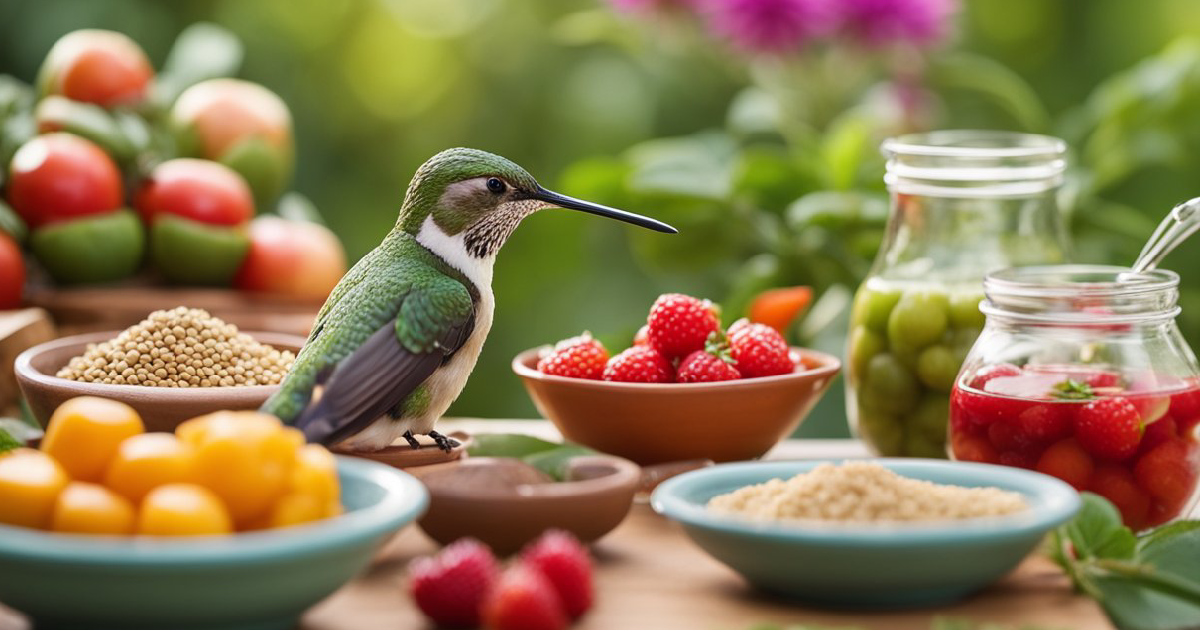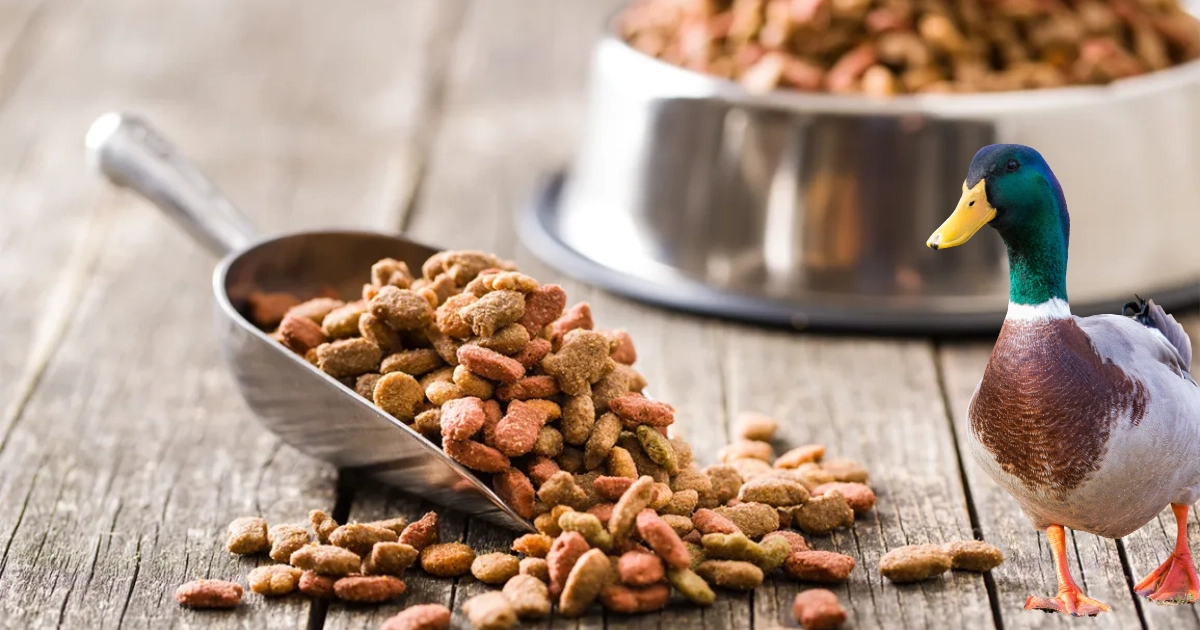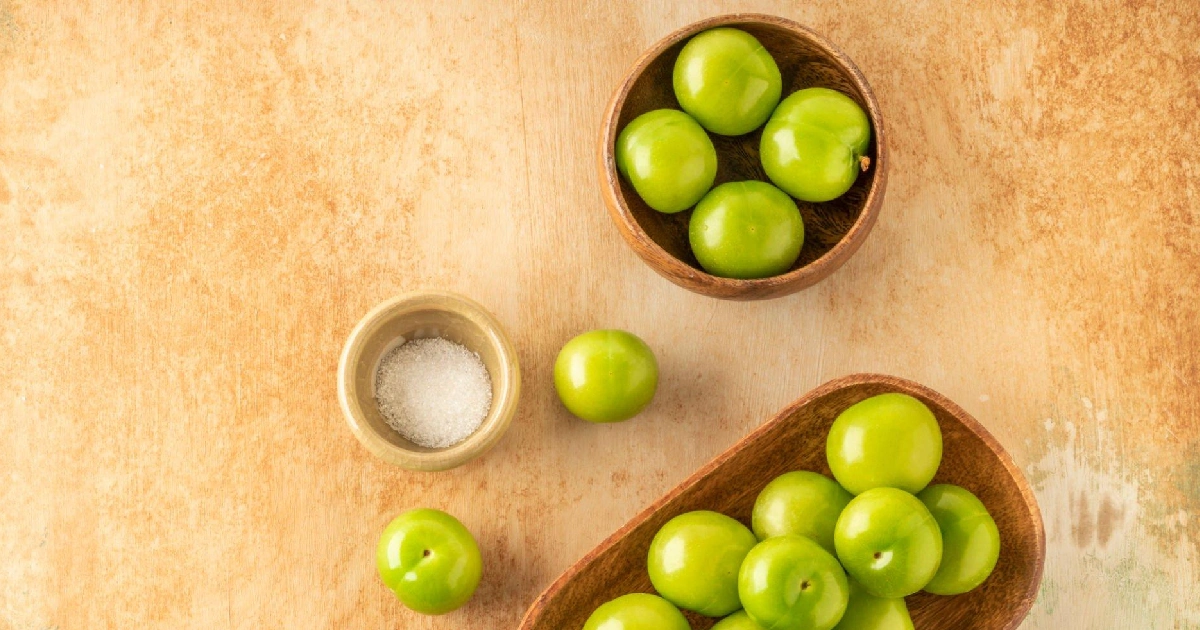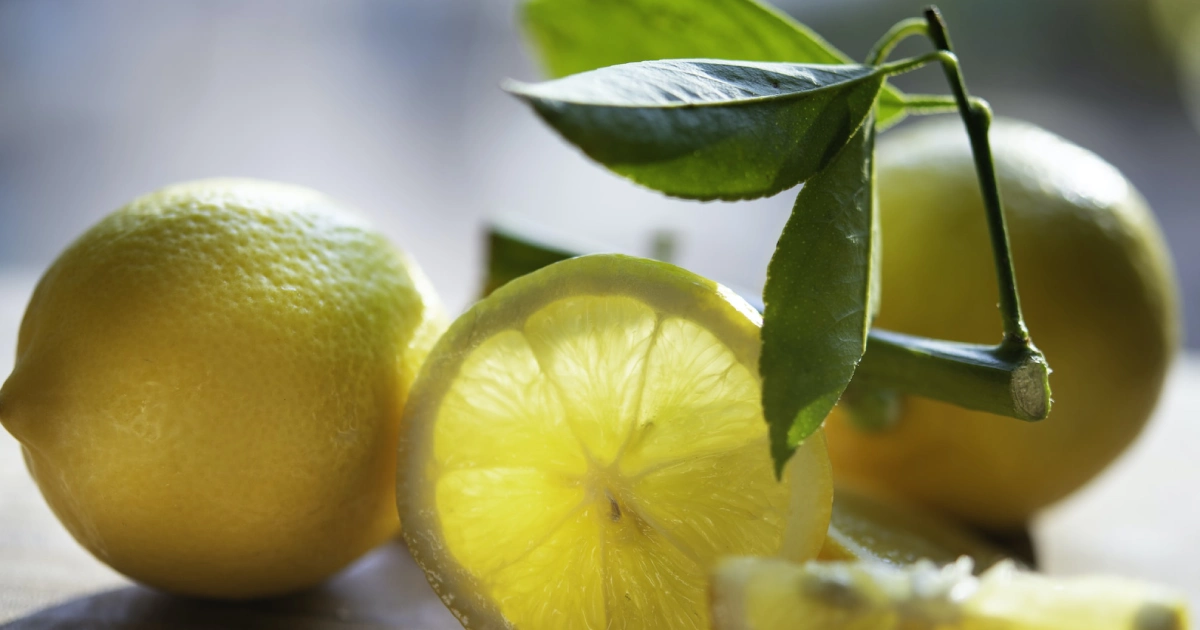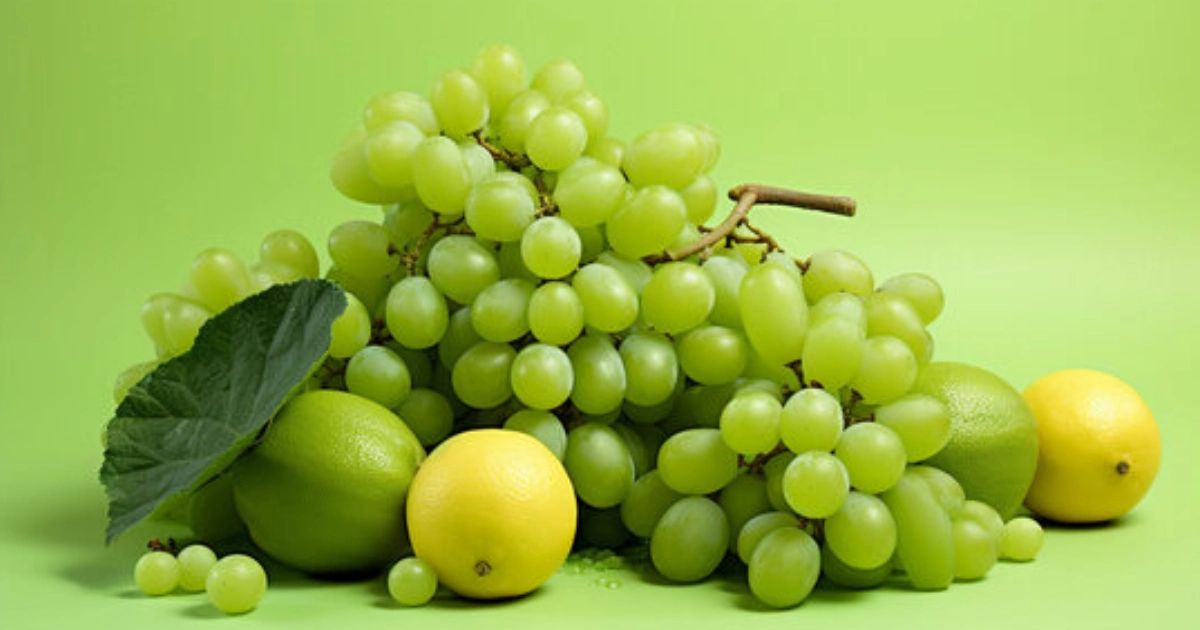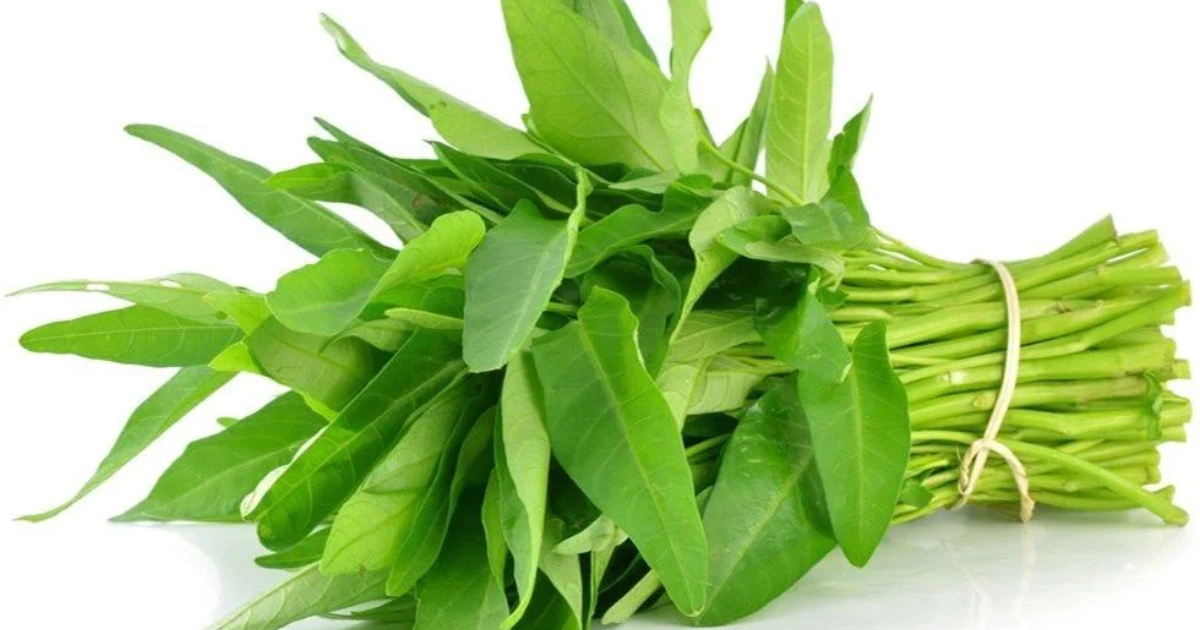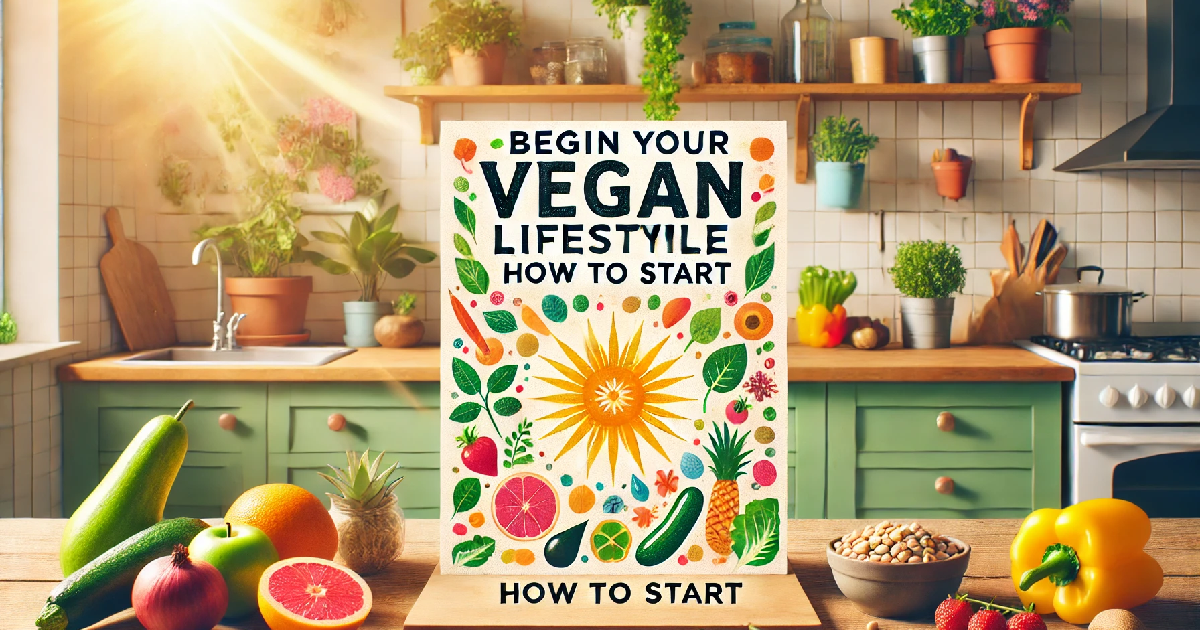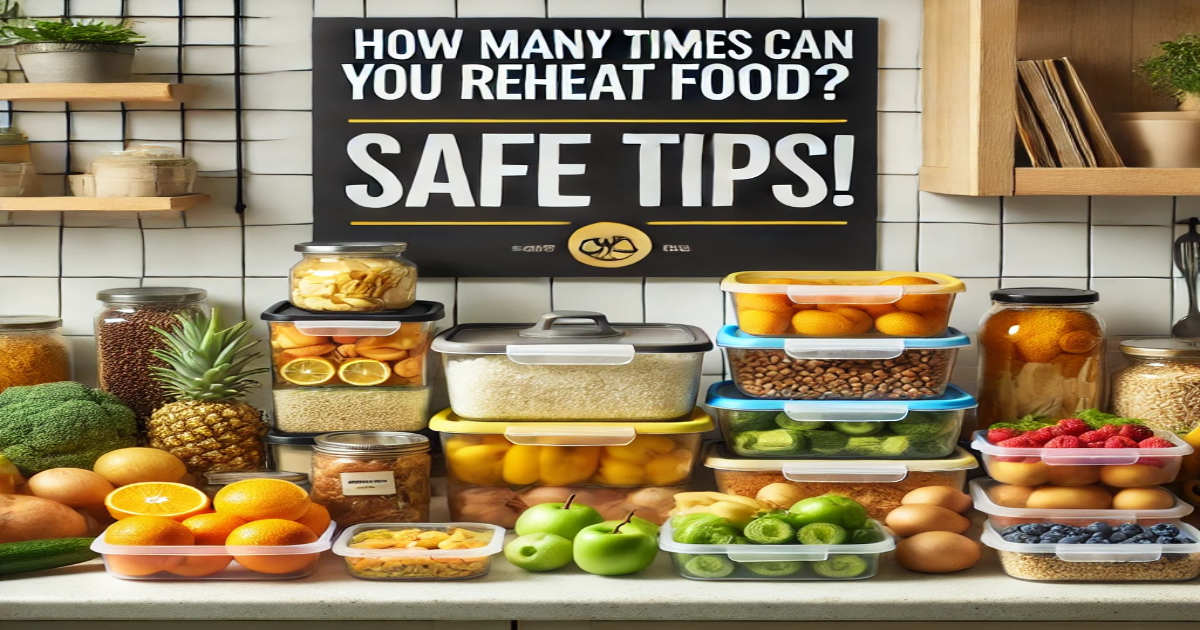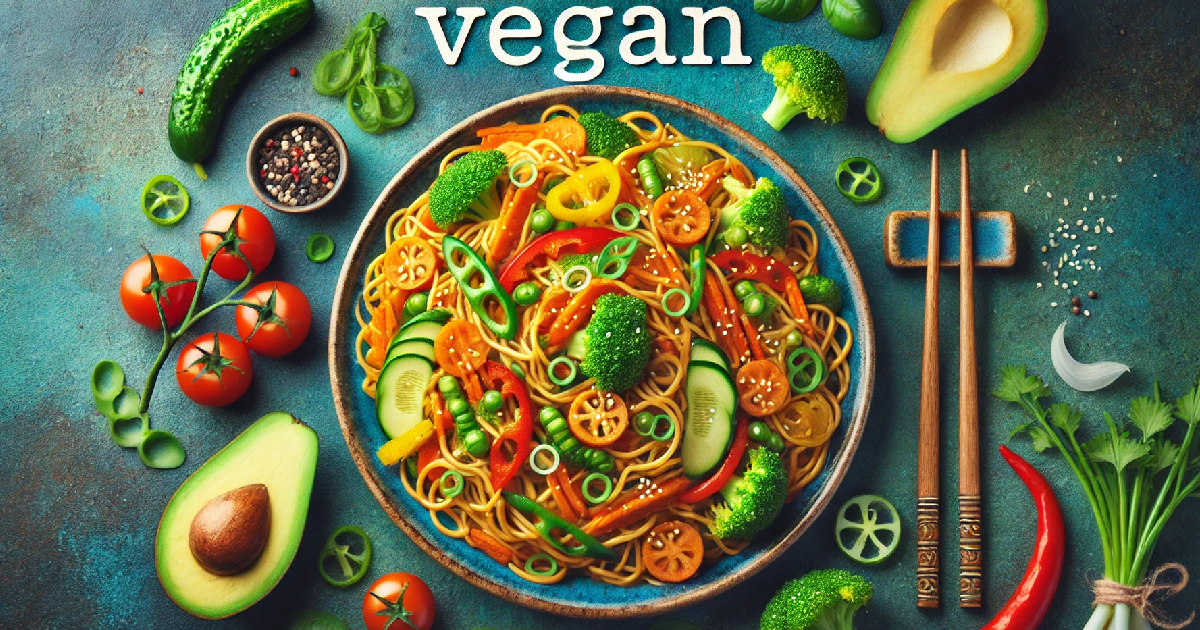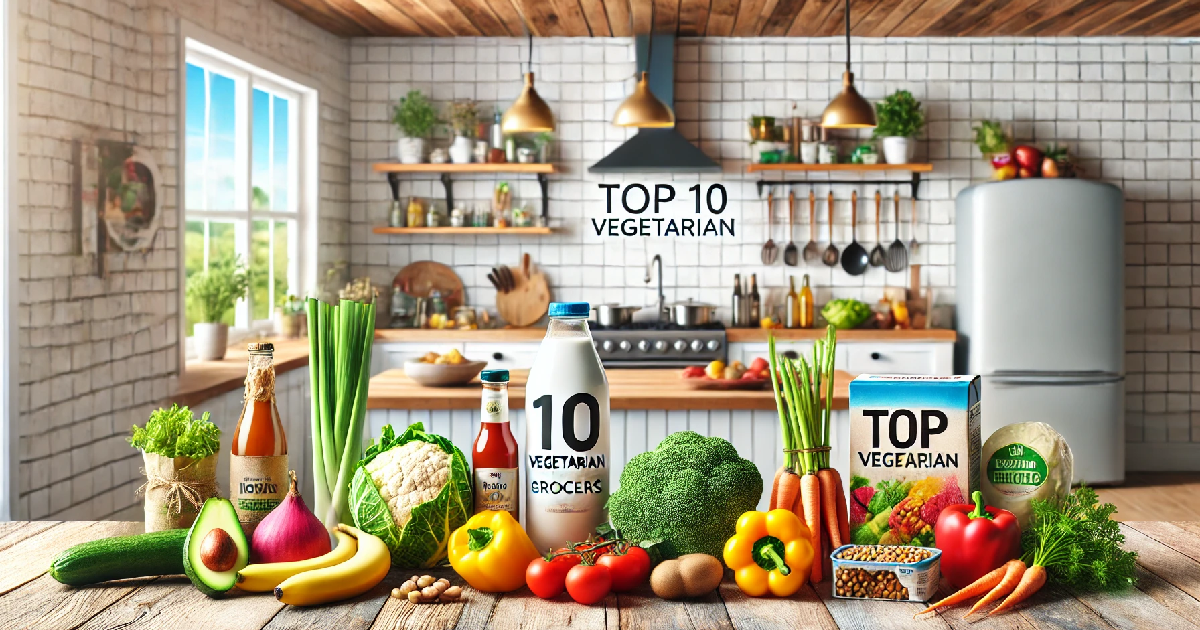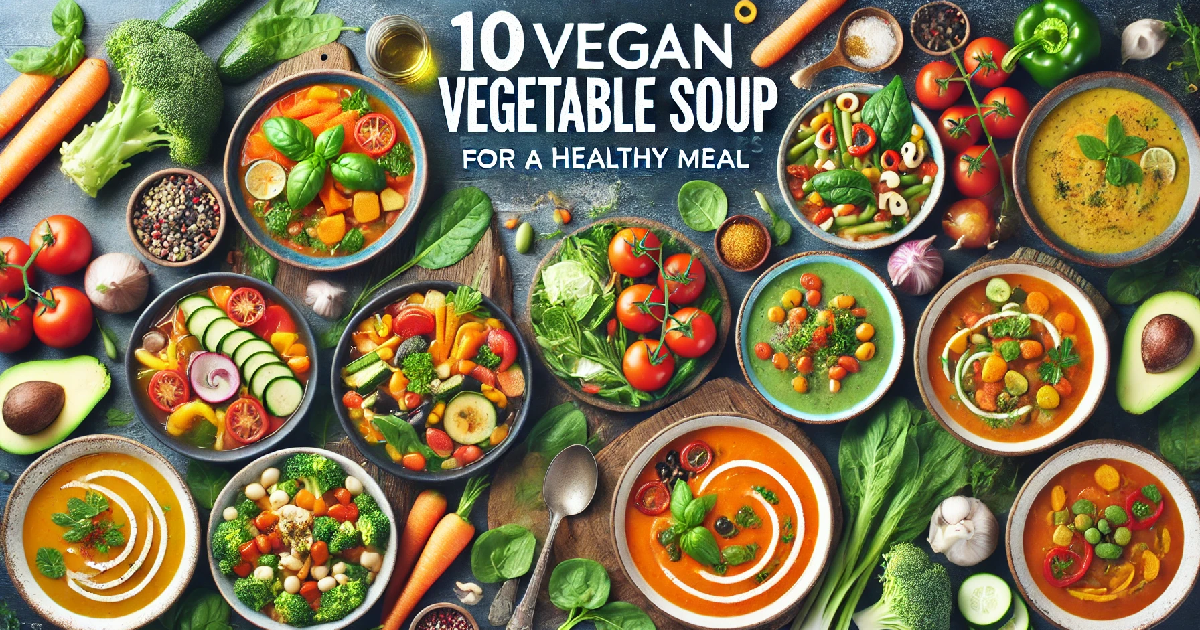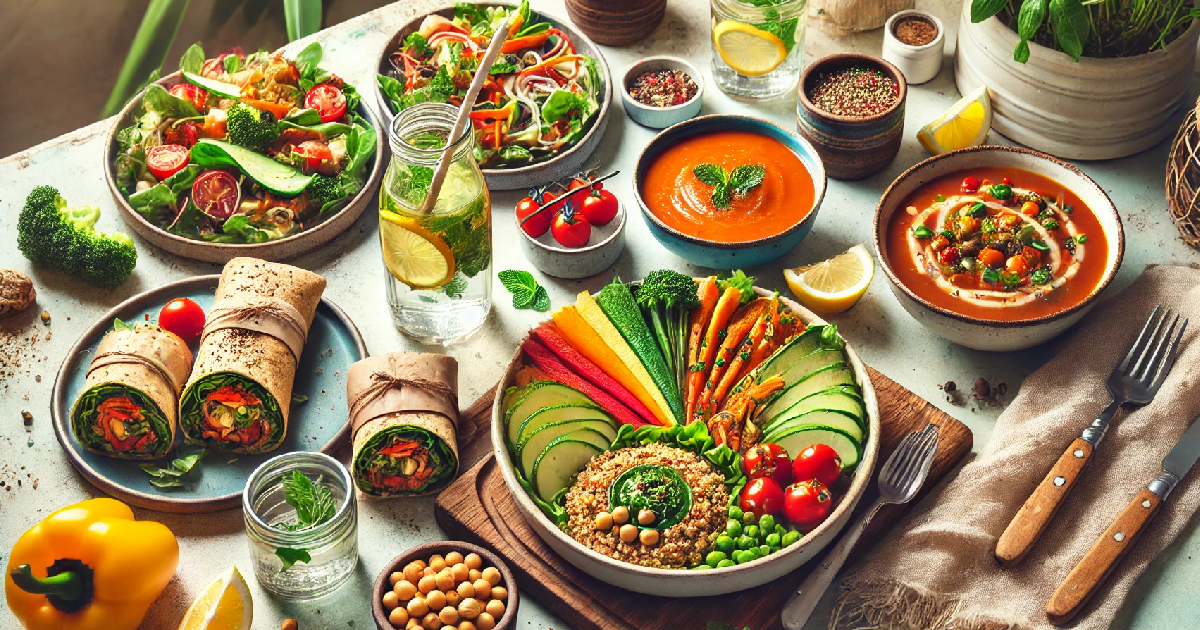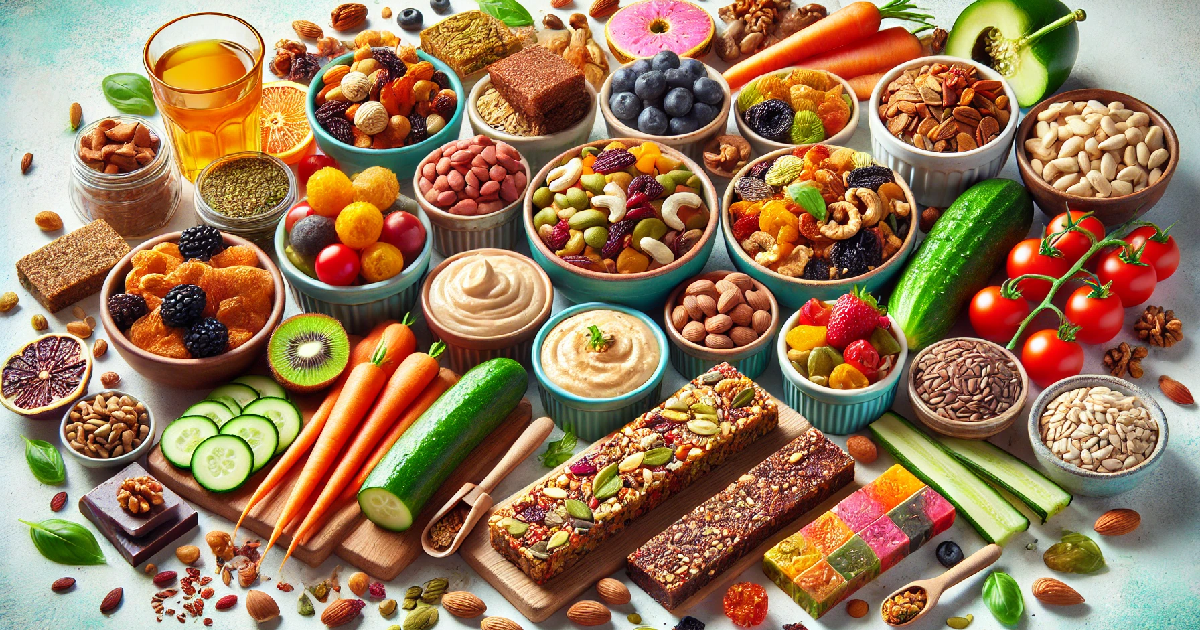Introduction
In a world where dietary choices increasingly reflect our values and health aspirations, veganism is more than just a trend—it is a movement. As more people embrace plant-based lifestyles, the quest for vegan-friendly options in beloved dishes becomes a thrilling culinary adventure. Among these beloved dishes, chow mein stands out, tantalizing taste buds with its savory flavors and satisfying textures. But the burning question remains: Is chow mein vegan?
If you’ve ever found yourself craving this iconic Chinese dish while navigating the vegan landscape, you’re not alone. The ingredients in chow mein can be a labyrinth of hidden animal products and unclear labels, leaving many vegans in a conundrum. This blog post dives deep into the heart of this question, uncovering the truth about chow mein and providing you with the knowledge to make informed choices.
Whether you’re a seasoned vegan, a curious newcomer, or simply someone who loves chow mein, understanding the intricacies of this dish is crucial. Join us as we explore the world of chow mein, decode its ingredients, and offer vegan-friendly alternatives that will allow you to enjoy this classic without compromising your values. Get ready to unravel the mystery and discover how chow mein can fit seamlessly into a compassionate, health-conscious lifestyle.
Is Chow Mein Vegan?
Chow mein, a staple of Chinese cuisine, is a dish many love for its savory taste and satisfying texture. But for those following a vegan diet, determining if chow mein is vegan-friendly can be challenging. To answer the question, we must delve into what’s in chow mein and identify any animal products typically used.
What’s in Chow Mein?
Chow mein typically consists of stir-fried noodles, vegetables, and a savory sauce. Common chow mein ingredients include wheat noodles, soy sauce, bean sprouts, bok choy, carrots, and onions. Chicken, beef, or shrimp are often added for protein.
However, there are plant-based alternatives for those seeking vegan Chinese food. For example, tofu or tempeh can replace meat, offering a satisfying, protein-rich option. The choice of vegetables can also be expanded to include bell peppers, snap peas, and mushrooms, enhancing the dish’s flavor and nutritional profile.
A crucial aspect to consider is the noodles themselves. Traditional chow mein noodles might contain eggs, which makes them unsuitable for vegans. Therefore, opting for plant-based noodles is essential. These can be rice noodles, soba noodles, or any egg-free wheat noodles.
Animal Products in Chow Mein
One of the main challenges for vegans is identifying hidden animal products in chow mein. Besides the apparent inclusion of meat, animal products can be found in various forms. The most common non-vegan ingredients include eggs in noodles and certain types of sauces.
Traditional chow mein noodles often contain eggs to give them a distinctive texture and color. This inclusion makes these noodles non-vegan. Fortunately, there are many egg-free noodle options available that are perfect for vegan noodle dishes.
The sauce used in chow mein can also contain animal products. For instance, oyster sauce, a popular ingredient, is made from oysters and unsuitable for vegans. To make the dish vegan-friendly, one can use alternatives like mushroom sauce or hoisin sauce, which provide similar umami flavors without using animal products.
Here’s a summary table of typical and vegan-friendly chow mein ingredients:
| Ingredient Type | Typical Ingredients | Vegan Alternatives |
|---|---|---|
| Noodles | Wheat noodles (may contain egg) | Rice noodles, soba noodles, egg-free wheat noodles |
| Protein | Chicken, beef, shrimp | Tofu, tempeh |
| Vegetables | Bean sprouts, bok choy, carrots, onions | Bell peppers, snap peas, mushrooms, broccoli |
| Sauce | Soy sauce, oyster sauce | Soy sauce, mushroom sauce, hoisin sauce |
Understanding these components is crucial for anyone following a vegan diet and wanting to enjoy chow mein without compromising their dietary choices. By being aware of typical chow mein ingredients and their vegan alternatives, vegans can enjoy this delicious dish while adhering to their lifestyle.
Chow Mein Ingredients and Vegan Concerns
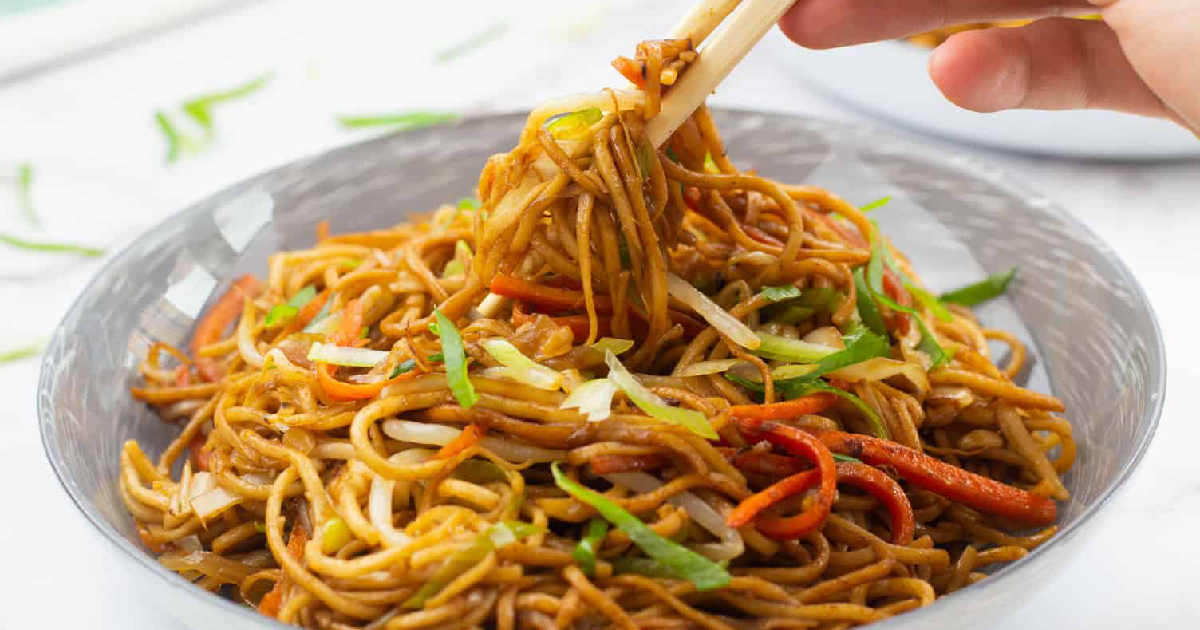
When considering whether chow mein is vegan, examining the specific ingredients used in its preparation is essential. Two primary areas of concern for vegans are the sauce ingredients and the presence of eggs in the noodles. Understanding these components is key to determining if chow mein can be part of a vegan diet.
Chow Mein Sauce Ingredients
The sauce in chow mein is a vital element that significantly contributes to its flavor. Traditional chow mein sauce typically includes soy, oyster, and sometimes fish. These ingredients can pose a problem for those following a vegan diet.
Soy sauce is generally vegan, made from fermented soybeans, wheat, water, and salt. However, oyster sauce is not vegan-friendly as it is made from oysters. Fish sauce, another common ingredient, is made from fermented fish, making it unsuitable for vegans.
For those seeking vegan Chinese food, it is crucial to find vegan-friendly substitutes. Mushroom sauce and hoisin sauce are excellent alternatives that provide similar umami flavors without using animal products. These alternatives make it possible to enjoy chow mein while adhering to a vegan diet.
Here’s a comparison table of traditional and vegan-friendly chow mein sauces:
| Sauce Type | Traditional Ingredients | Vegan Alternatives |
|---|---|---|
| Soy Sauce | Soybeans, wheat, water, salt | Soybeans, wheat, water, salt |
| Oyster Sauce | Oysters | Mushroom sauce |
| Fish Sauce | Fermented fish | Hoisin sauce |
Egg in Noodles
Another critical concern for vegans is the presence of eggs in noodles. Traditional chow mein noodles often contain eggs, which help to give the noodles their distinctive texture and color. This inclusion of eggs in noodles makes them non-vegan.
Eggs are used in noodles to provide a rich texture and a slightly yellow hue. This is common in many Chinese dishes, but it presents a problem for those adhering to a vegan diet. Fortunately, plenty of plant-based noodles are available that do not contain eggs.
For vegan-friendly Chinese recipes, rice noodles, soba noodles, or egg-free wheat noodles can be used. These alternatives offer the same delicious taste and texture without compromising vegan principles. Selecting these noodles ensures that your chow mein remains a part of dairy-free Chinese cuisine.
Here’s a summary table of traditional and vegan-friendly noodles:
| Noodle Type | Traditional Ingredients | Vegan Alternatives |
|---|---|---|
| Chow Mein Noodles | Wheat flour, eggs | Rice noodles |
| Egg Noodles | Wheat flour, eggs | Soba noodles |
| Lo Mein Noodles | Wheat flour, eggs | Egg-free wheat noodles |
Understanding these key ingredients helps make informed choices about whether chow mein can fit into a vegan diet. By opting for vegan-friendly alternatives, you can enjoy this beloved dish without compromising your dietary values.
Vegan Alternatives for Chow Mein
Creating vegan alternatives for chow mein involves selecting ingredients that adhere to vegan dietary principles. By choosing plant-based noodles and making simple modifications to traditional recipes, you can enjoy a delicious and satisfying vegan version of this beloved dish. Let’s explore how to make chow mein vegan-friendly.
Plant-Based Noodles
One of the first steps in making vegan chow mein is selecting the right noodles. Traditional chow mein noodles often contain eggs, making them unsuitable for vegans. However, there are plenty of vegan-friendly noodle alternatives available that can be used in vegan noodle dishes.
Rice noodles are an excellent option, made from rice flour and water, with no animal products involved. These noodles have a light texture and are perfect for absorbing the flavors of the chow mein sauce. Another great option is soba noodles, made from buckwheat flour and sometimes mixed with whole wheat flour, providing a nutty flavor and chewy texture.
For those who prefer the texture of traditional wheat noodles, egg-free wheat noodles are available. These noodles are made from wheat flour and water, offering the familiar bite of chow mein without any animal products. By choosing these plant-based noodles, you ensure that your dish remains within the bounds of vegan Chinese food.
Here’s a comparison table of noodle options:
| Noodle Type | Traditional Ingredients | Vegan Alternatives |
|---|---|---|
| Chow Mein Noodles | Wheat flour, eggs | Rice noodles |
| Egg Noodles | Wheat flour, eggs | Soba noodles |
| Lo Mein Noodles | Wheat flour, eggs | Egg-free wheat noodles |
Vegan-Friendly Chinese Recipes
Transforming traditional chow mein into a vegan-friendly dish involves more than selecting the right noodles. It requires adapting the entire recipe to exclude animal products. Fortunately, many simple modifications can be made to achieve this.
Tofu is a fantastic option for replacing the protein typically provided by meat. It absorbs flavors well and provides a satisfying texture similar to that of chicken or beef. Tempeh is another excellent alternative, offering a firmer texture and a rich, nutty flavor. Both of these options fit perfectly into vegan-friendly Chinese recipes.
The vegetables in chow mein are already vegan, but you can enhance the dish by adding more variety. Bell peppers, snap peas, broccoli, and mushrooms not only add nutritional value but also improve the taste and texture of the dish. These vegetarian chow mein alternatives ensure your meal is flavorful and nutritious.
The sauce is a crucial component of chow mein. Instead of using oyster sauce or fish sauce, opt for mushroom sauce or hoisin sauce. These sauces provide a similar depth of flavor without any animal products, making them ideal for dairy-free Chinese cuisine. By making these substitutions, you can enjoy a delicious vegan version of chow mein.
Here’s a summary table of chow mein modifications:
| Ingredient Type | Traditional Ingredients | Vegan Alternatives |
|---|---|---|
| Protein | Chicken, beef, shrimp | Tofu, tempeh |
| Vegetables | Bean sprouts, bok choy, carrots, onions | Bell peppers, snap peas, broccoli, mushrooms |
| Sauce | Soy sauce, oyster sauce | Soy sauce, mushroom sauce, hoisin sauce |
By choosing the right plant-based noodles and making thoughtful substitutions, you can easily prepare vegan chow mein that is both delicious and satisfying. These vegan-friendly Chinese recipes allow you to enjoy this classic dish while adhering to a plant-based diet.
Exploring Vegan Chinese Food
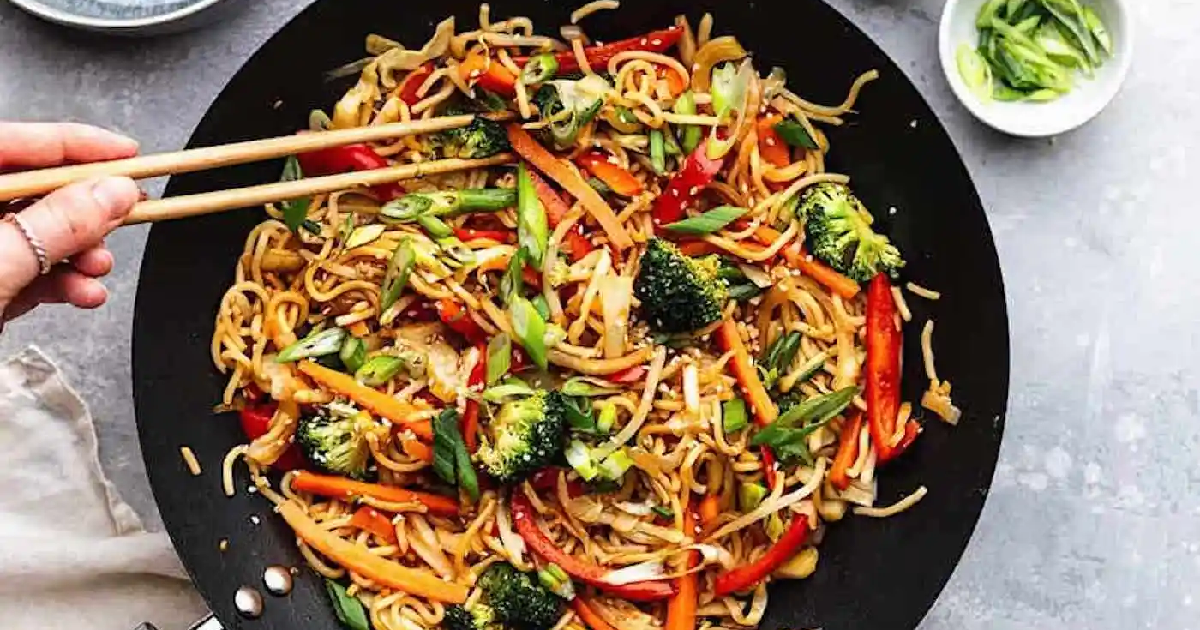
The rich tapestry of Chinese cuisine offers many options for those following a vegan diet. By exploring naturally vegan or easily modified dishes, vegans can enjoy a variety of flavors and textures without compromising their dietary choices. Let’s delve into the world of dairy-free Chinese cuisine and discover broader vegan options.
Dairy-Free Chinese Cuisine
Many traditional Chinese dishes are naturally dairy-free, making them an excellent choice for vegans. Stir-fried vegetables, for instance, are a staple in Chinese cuisine and can be enjoyed without modification. Dishes like stir-fried broccoli with garlic sauce or sautéed green beans are naturally vegan and flavorful.
Tofu dishes are another cornerstone of dairy-free Chinese cuisine. Mapo tofu, traditionally made with pork, can easily be veganized by using plant-based meat alternatives or simply focusing on the tofu and rich, spicy sauce. Kung Pao tofu, a vegan-friendly twist on Kung Pao chicken, features tofu stir-fried with peanuts, vegetables, and a tangy, spicy sauce.
Noodle and rice dishes can also be made vegan with slight modifications. Vegetable fried rice, for example, can be prepared without eggs and meat, resulting in a satisfying and wholesome vegan meal. Similarly, vegan noodle dishes like vegetable lo mein can be made using plant-based noodles and a variety of fresh vegetables.
Here’s a table of naturally vegan or easily modified Chinese dishes:
| Dish Type | Traditional Ingredients | Vegan Modifications |
|---|---|---|
| Stir-Fried Vegetables | Broccoli, garlic, soy sauce | No modifications needed |
| Mapo Tofu | Tofu, pork, spicy sauce | Use plant-based meat or focus on tofu |
| Kung Pao Tofu | Tofu, chicken, peanuts, vegetables | Replace chicken with tofu |
| Vegetable Fried Rice | Rice, vegetables, egg, meat | Omit egg and meat |
| Vegetable Lo Mein | Noodles, vegetables, soy sauce | Use plant-based noodles, no modifications |
Chinese Cuisine Vegan Options
Beyond individual dishes, Chinese cuisine offers broader options for vegan diets. Dim sum, a traditional Chinese meal consisting of small plates, includes several vegan-friendly options. Steamed vegetable dumplings, for example, are typically filled with a mixture of vegetables and mushrooms, making them a delightful vegan choice.
Hot pot, another popular Chinese dining experience, can be tailored to vegan preferences. By selecting a vegetable broth base and an assortment of plant-based ingredients like tofu, mushrooms, and leafy greens, vegans can enjoy a communal and customizable meal. The dipping sauces can also be adjusted to ensure they are free from animal products.
Sichuan cuisine, known for its bold flavors and liberal use of spices, also offers several vegan options. Dishes like Sichuan eggplant or stir-fried tofu with chili and garlic are naturally vegan or can be easily modified to exclude animal products. These dishes showcase the diversity and richness of vegan Chinese food.
Here’s a summary table of broader vegan options in Chinese cuisine:
| Cuisine Type | Traditional Ingredients | Vegan Modifications |
|---|---|---|
| Dim Sum | Various fillings, often meat | Choose vegetable or mushroom fillings |
| Hot Pot | Meat, seafood, vegetable broth | Use vegetable broth, plant-based ingredients |
| Sichuan Cuisine | Various meats, tofu, spices | Focus on vegetable and tofu dishes, adjust sauces |
Exploring vegan Chinese food opens up a world of culinary possibilities. By understanding which dishes are naturally vegan or can be easily modified, you can enjoy a diverse range of flavors and textures. This approach ensures you can savor the best Chinese cuisine while staying true to your vegan principles.
Can Vegans Eat Chow Mein?
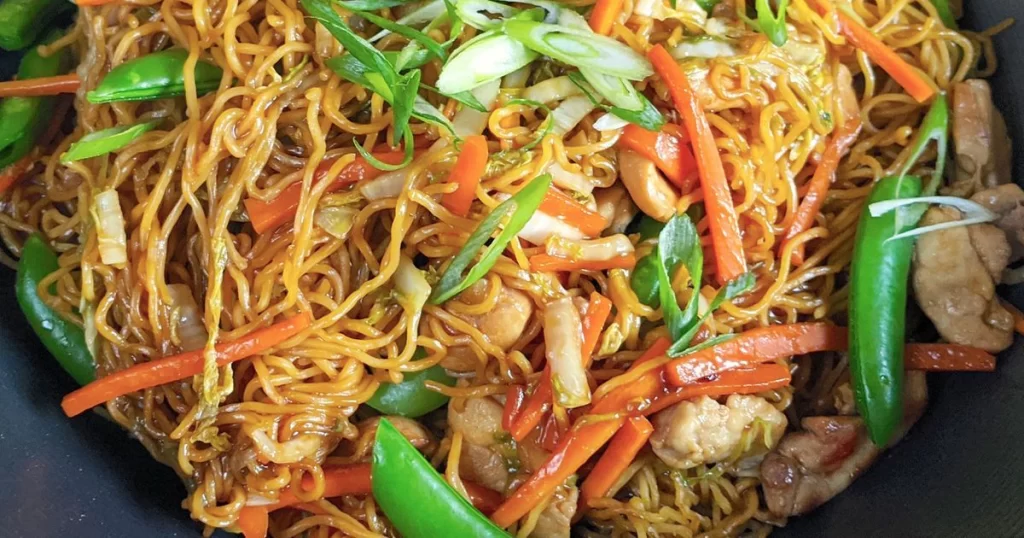
Determining if vegans can eat chow mein requires a close examination of its ingredients. While the traditional recipe can be modified to be vegan-friendly, it often includes non-vegan elements. Identifying these ingredients and finding suitable substitutes is crucial.
Identifying Non-Vegan Ingredients in Chow Mein
Traditional chow mein recipes commonly include several non-vegan ingredients. Meat, such as chicken, beef, or shrimp, is often used as a primary protein source. These animal products in chow mein make it unsuitable for vegans.
Eggs are another common ingredient, particularly in noodles. The inclusion of eggs in noodles adds to the dish’s rich texture and flavor, but it also means that these noodles are not vegan. Some chow mein sauce ingredients, like oyster sauce, contain animal derivatives.
To make chow mein vegan, these non-vegan ingredients need to be identified and substituted. This process ensures that the dish aligns with vegan dietary principles while maintaining its delicious flavor and texture.
Tips for Veganizing Chow Mein
Veganizing chow mein involves replacing animal-based ingredients with plant-based alternatives. Tofu or tempeh can be used for protein instead of meat. These plant-based proteins absorb the chow mein sauce well, providing a satisfying texture.
The noodles should be checked to ensure they are free from eggs. Choosing plant-based noodles, such as rice noodles or egg-free wheat noodles, is essential. These noodles can effectively replace traditional ones without compromising the dish’s integrity.
For the sauce, substituting oyster sauce with mushroom sauce or hoisin sauce is a great option. These vegan-friendly sauces provide the umami flavor that makes chow mein so appealing. By making these substitutions, you can enjoy a vegan version of chow mein that is both delicious and ethical.
Do Chow Mein Noodles Contain Egg?
The type of noodles used in chow mein is a significant factor in determining if the dish is vegan. Traditional chow mein noodles often contain eggs, which are used to enhance their texture and color. Understanding the different types of noodles and their ingredients is essential for vegans.
Types of Noodles Used in Chow Mein
Chow mein typically features wheat noodles that may contain eggs. These eggs in noodles give them a richer texture and slightly yellow color. While these noodles are popular for their taste and texture, they are not suitable for those following a vegan diet.
Other types of noodles, such as lo mein noodles, also often contain eggs. It is crucial for vegans to read ingredient labels carefully when purchasing noodles for chow mein. Identifying which noodles are egg-free helps ensure that the dish remains vegan-friendly.
Noodle Type Comparison Table:
| Noodle Type | Traditional Ingredients | Vegan Status |
|---|---|---|
| Chow Mein Noodles | Wheat flour, eggs | Non-vegan |
| Lo Mein Noodles | Wheat flour, eggs | Non-vegan |
| Rice Noodles | Rice flour, water | Vegan |
| Soba Noodles | Buckwheat flour, water | Vegan |
Egg-Free Noodle Alternatives
For a vegan version of chow mein, it is essential to choose egg-free noodles. Rice noodles are an excellent option as they are made from rice flour and water. These noodles are naturally vegan and work well in chow mein dishes.
Soba noodles, made from buckwheat flour, are another great alternative. They offer a slightly nutty flavor and are typically vegan. Additionally, egg-free wheat noodles can be found in many stores, providing a similar texture to traditional chow mein noodles without using animal products.
By opting for these vegan-friendly noodles, you can ensure that your chow mein is suitable for a plant-based diet. These alternatives allow you to enjoy a delicious and ethical version of this popular dish.
Here’s a summary table of vegan-friendly noodle options:
| Noodle Type | Ingredients | Vegan Status |
|---|---|---|
| Rice Noodles | Rice flour, water | Vegan |
| Soba Noodles | Buckwheat flour, water | Vegan |
| Egg-Free Wheat Noodles | Wheat flour, water | Vegan |
Understanding and selecting the right ingredients is key to making chow mein vegan. By identifying non-vegan elements and choosing suitable substitutes, you can enjoy this classic Chinese dish while adhering to your dietary preferences.
Is Chow Mein Non-Vegetarian?
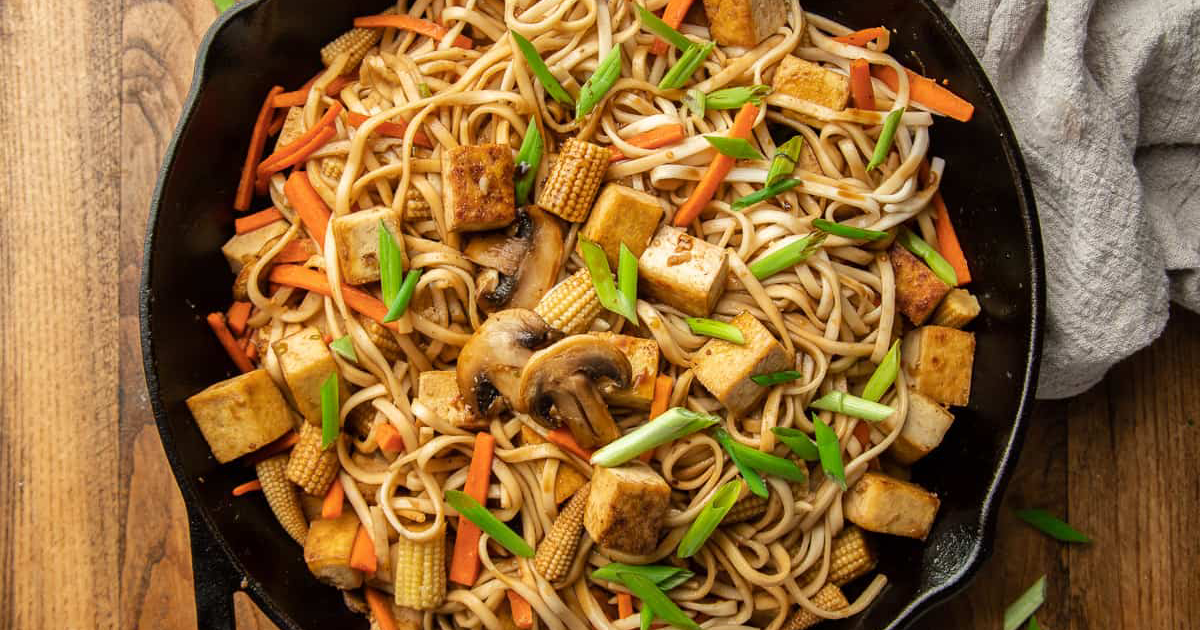
Chow mein, a beloved Chinese dish, is traditionally non-vegetarian. The inclusion of various meat-based ingredients makes it unsuitable for those following a vegetarian or vegan diet. Understanding these components is essential for anyone looking to enjoy a vegetarian or vegan version of this dish.
Common Non-Vegetarian Ingredients in Chow Mein
Traditional chow mein often includes several meat-based ingredients. Chicken, beef, and shrimp are commonly used to add protein and flavor. These ingredients are typically stir-fried with vegetables and noodles, making chow mein a hearty and savory meal.
Meat is not the only animal product found in traditional chow mein. As previously discussed, egg in noodles is a frequent addition, contributing to the texture and richness of the dish. Furthermore Chow mein sauce ingredients, such as oyster sauce or fish sauce, are derived from animals, adding to its non-vegetarian profile.
Identifying these animal products in chow mein is crucial for anyone attempting to adhere to a vegetarian or vegan diet. Substituting these ingredients with plant-based alternatives allows for the creation of vegetarian chow mein alternatives.
Vegetarian vs. Vegan Chow Mein
Vegetarian chow mein differs from vegan chow mein in a few key ways. Vegetarian versions of chow mein exclude meat but may still include animal products such as eggs and dairy. For example, a vegetarian chow mein might use egg noodles and sauces containing dairy.
In contrast, vegan chow mein eliminates all animal products, including eggs and dairy. Ensuring a dish is vegan requires a careful selection of chow mein ingredients. Plant-based noodles, tofu, tempeh for protein, and vegan sauces are essential.
When preparing or ordering chow mein, it’s important to verify the ingredients. Many dishes labeled as vegetarian may still contain animal derivatives, like eggs in noodles. Asking for specific modifications or checking the ingredients list can help ensure the dish is vegan.
Here’s a comparison table to clarify the differences:
| Ingredient Type | Traditional Chow Mein | Vegetarian Chow Mein | Vegan Chow Mein |
|---|---|---|---|
| Protein | Chicken, beef, shrimp | Plant-based proteins, may include eggs | Tofu, tempeh |
| Noodles | Wheat noodles (may contain egg) | Egg noodles or plant-based noodles | Plant-based noodles |
| Sauce | Oyster sauce, fish sauce | May contain dairy or egg | Soy sauce, mushroom sauce, hoisin sauce |
Understanding the differences between vegetarian and vegan chow mein helps make informed dietary choices. By selecting vegan-friendly Chinese recipes and using appropriate substitutes, you can enjoy chow mein that aligns with your dietary preferences.
Vegetarian chow mein alternatives are a step towards more ethical eating, but accurate vegan versions ensure that no animal products are used. This distinction is crucial for those committed to a completely plant-based lifestyle. Exploring Chinese cuisine vegan options allows for a diverse and satisfying culinary experience without compromising on vegan principles.
What Chinese Dish is Vegan?
Exploring vegan options in Chinese cuisine reveals a variety of dishes that are both flavorful and satisfying. Many traditional Chinese dishes are either naturally vegan or can be easily modified to fit a vegan diet. Understanding these options allows for a delightful culinary experience that aligns with vegan principles.
Popular Vegan Chinese Dishes
Several Chinese dishes are inherently vegan or can be made vegan with minor adjustments. One of the most popular vegan Chinese dishes is vegetable stir-fry. This dish typically includes a mix of colorful vegetables such as bell peppers, broccoli, carrots, and snap peas, stir-fried in soy sauce, and other seasonings.
Another beloved vegan dish is Mapo Tofu. Traditionally made with minced meat, this dish can be veganized by using plant-based proteins or focusing on the tofu itself. The rich and spicy sauce, combined with tofu and vegetables, creates a satisfying and hearty meal.
Spring rolls are also a fantastic vegan option. These crispy rolls are usually filled with a variety of vegetables and mushrooms. When paired with a dipping sauce like hoisin or soy sauce, they make for a delicious appetizer or snack.
Here’s a table summarizing popular vegan Chinese dishes:
| Dish Type | Common Ingredients | Vegan Modifications |
|---|---|---|
| Vegetable Stir-Fry | Bell peppers, broccoli, carrots, soy sauce | No modifications needed |
| Mapo Tofu | Tofu, spicy sauce, vegetables | Use plant-based proteins or focus on tofu |
| Spring Rolls | Vegetables, mushrooms, wrappers | Ensure wrappers are egg-free |
| Hot and Sour Soup | Tofu, mushrooms, bamboo shoots | Use vegetable broth instead of meat broth |
Ingredients to Watch Out For
While many Chinese dishes can be vegan, certain ingredients commonly used in Chinese cuisine are not vegan. Being aware of these ingredients helps make informed choices and ensure that meals are vegan.
One of the most common non-vegan ingredients is oyster sauce. Made from oysters, this sauce is frequently used in stir-fries and other dishes to add umami flavor. A suitable alternative for vegans is mushroom sauce, which provides a similar flavor depth without animal products.
Eggs in noodles are another ingredient to be cautious of. Traditional Chinese noodles, such as lo mein and chow mein, often contain eggs. Opting for plant-based noodles like rice noodles or soba noodles is essential for maintaining a vegan diet.
Additionally, fish sauce is commonly used in Chinese cooking, particularly in soups and sauces. This ingredient is derived from fermented fish and is not suitable for vegans. Hoisin sauce or soy sauce can be used as alternatives to achieve a similar taste profile.
Here’s a table highlighting non-vegan ingredients and their alternatives:
| Non-Vegan Ingredient | Common Usage | Vegan Alternative |
|---|---|---|
| Oyster Sauce | Stir-fries, sauces | Mushroom sauce |
| Egg in Noodles | Noodles (lo mein, chow mein) | Rice noodles, soba noodles |
| Fish Sauce | Soups, dipping sauces | Hoisin sauce, soy sauce |
| Meat Broth | Soups, stews | Vegetable broth |
By identifying popular vegan Chinese dishes and being mindful of non-vegan ingredients, you can enjoy a wide range of delicious and ethical meals. These options allow you to savor the rich flavors of Chinese cuisine while adhering to a plant-based diet. Exploring vegan-friendly Chinese recipes and alternatives enhances your culinary experience and ensures you can enjoy traditional dishes without compromising your dietary values.
Can Vegans Eat Noodles?
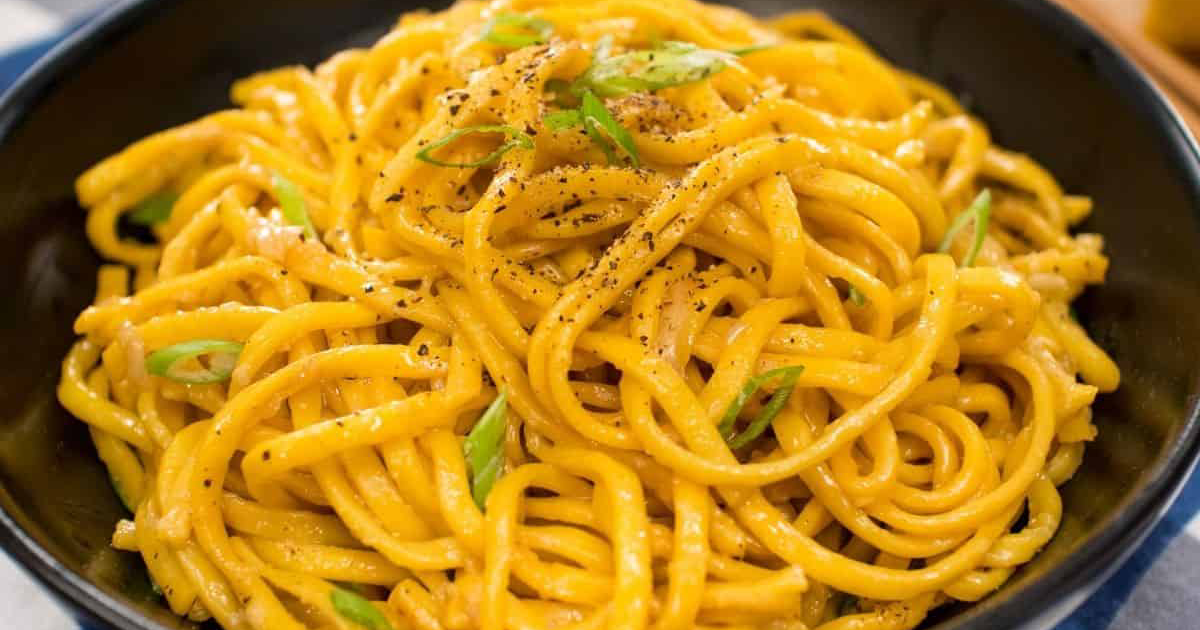
Noodles are a fundamental component of many Chinese dishes, including chow mein. For vegans, determining whether noodles suit their diet involves understanding the ingredients and selecting vegan-friendly varieties. Let’s explore the options and how to ensure your noodles are vegan.
Vegan-Friendly Noodle Varieties
There are numerous types of noodles that are inherently vegan. Rice noodles are a popular choice in vegan Chinese food due to their simplicity and versatility. Made from rice flour and water, these noodles are a staple in many Asian dishes and pair well with various chow mein ingredients.
Soba noodles, made primarily from buckwheat flour, are another excellent option. These noodles are typically vegan and offer a nutty flavor that enhances many vegan noodle dishes. They can be used in both hot and cold dishes, making them a versatile addition to any vegan pantry.
Another vegan-friendly noodle option is egg-free wheat noodles. While traditional wheat noodles often contain eggs, many brands now offer egg-free versions. These noodles provide the same texture and bite as their non-vegan counterparts, making them ideal for vegan-friendly Chinese recipes.
Here’s a table summarizing vegan-friendly noodle varieties:
| Noodle Type | Common Ingredients | Vegan Status |
|---|---|---|
| Rice Noodles | Rice flour, water | Vegan |
| Soba Noodles | Buckwheat flour, water | Vegan |
| Egg-Free Wheat Noodles | Wheat flour, water | Vegan |
| Glass Noodles | Mung bean starch, water | Vegan |
Reading Labels for Vegan Noodles
Ensuring that noodles are vegan involves carefully reading ingredient labels. While many noodles are made from simple ingredients like flour and water, some varieties include animal products such as eggs. To maintain a vegan diet, it is crucial to know what to look for on labels.
Start by checking the list of obvious non-vegan ingredients. Eggs are often listed as “egg,” “egg yolk,” or “egg white.” Dairy products, though less common in noodles, can appear as “milk,” “whey,” or “casein.” Avoiding these ingredients ensures that the noodles are free from animal products.
It’s also helpful to look for certification marks such as the Vegan Society logo or other vegan certifications. These marks indicate that the product has been verified to be free from animal products. Additionally, seeking out brands known for their vegan products can make the selection process easier.
Opt for noodles made from plant-based ingredients like rice, buckwheat, or mung bean starch when in doubt. These naturally vegan noodles are widely available, making them a safe and convenient choice for vegan noodle dishes.
Here’s a table of common non-vegan ingredients to watch for:
| Non-Vegan Ingredient | Common Label Names | Alternative Options |
|---|---|---|
| Eggs | Egg, egg yolk, egg white | Egg-free versions, plant-based noodles |
| Dairy | Milk, whey, casein | Rice noodles, soba noodles |
| Animal Fats | Lard, tallow | Vegetable oils |
By understanding vegan-friendly noodle varieties and knowing how to read labels effectively, vegans can confidently enjoy a wide range of noodle dishes. This knowledge ensures that their meals align with their dietary values while exploring the rich flavors of Chinese cuisine vegan options.
Vegan Chow Mein Sauce
The sauce is a critical component of chow mein, bringing together all the ingredients with its rich, savory flavor. Traditional chow mein sauce often includes non-vegan ingredients, but there are plenty of vegan alternatives that can replicate the taste without using animal products. Understanding these options allows for a delicious and ethical dining experience.
Traditional vs. Vegan Chow Mein Sauce
Traditional chow mein sauce is typically made with soy sauce, oyster sauce, and sometimes fish sauce. These ingredients contribute to the depth of flavor that makes chow mein so appealing. However, oyster sauce is made from oysters, and fish sauce is derived from fermented fish, making both unsuitable for vegans.
To create a vegan version, replacing these non-vegan components with plant-based alternatives is essential. Soy sauce remains a staple, as it is naturally vegan. Instead of oyster sauce, mushroom sauce is an excellent substitute. It provides a similar umami flavor without any animal products. Hoisin sauce, which is also vegan, can add sweetness and complexity to the sauce.
These substitutions ensure that the chow mein sauce retains its characteristic taste while adhering to vegan principles.
Here’s a table comparing traditional and vegan chow mein sauce ingredients:
| Sauce Component | Traditional Ingredients | Vegan Alternatives |
|---|---|---|
| Salty Base | Soy sauce | Soy sauce |
| Umami Flavor | Oyster sauce, fish sauce | Mushroom sauce, hoisin sauce |
| Sweetness | Sugar (sometimes) | Sugar (vegan-certified if needed) |
How to Make Vegan Chow Mein Sauce
Making vegan chow mein sauce at home is straightforward and ensures that all ingredients align with vegan standards. Here’s a simple recipe for a flavorful vegan chow mein sauce:
Ingredients:
- 1/4 cup soy sauce
- 2 tablespoons mushroom sauce
- 1 tablespoon hoisin sauce
- 1 tablespoon rice vinegar
- 1 teaspoon sugar (vegan-certified if needed)
- 1 teaspoon sesame oil
- 1/4 cup vegetable broth
- 1 clove garlic, minced
- 1 teaspoon fresh ginger, grated
Instructions:
- In a small bowl, combine the soy sauce, mushroom sauce, hoisin sauce, rice vinegar, sugar, and sesame oil.
- Add the vegetable broth, garlic, and ginger. Mix well to combine all the ingredients.
- Adjust the seasoning to taste, adding more soy sauce for saltiness or more sugar for sweetness if desired.
This vegan chow mein sauce can be used with plant-based noodles and your choice of vegetables and proteins. It brings a rich, savory flavor to the dish, making it a delightful part of vegan Chinese food.
Here’s a summary table for making vegan chow mein sauce:
| Step | Description | Notes |
|---|---|---|
| Combine Bases | Soy sauce, mushroom sauce, hoisin sauce | Use naturally vegan sauces |
| Add Flavors | Rice vinegar, sugar, sesame oil | Ensure sugar is vegan-certified if needed |
| Mix Aromatics | Garlic, ginger | Fresh ingredients for best flavor |
| Adjust Seasoning | Taste and modify as needed | Customize to personal preference |
By understanding how to make vegan chow mein sauce, you can enjoy this classic dish without compromising on flavor or ethical standards. This approach ensures that your meals are both delicious and aligned with your vegan lifestyle.
Are Super Noodles Chow Mein Vegan?
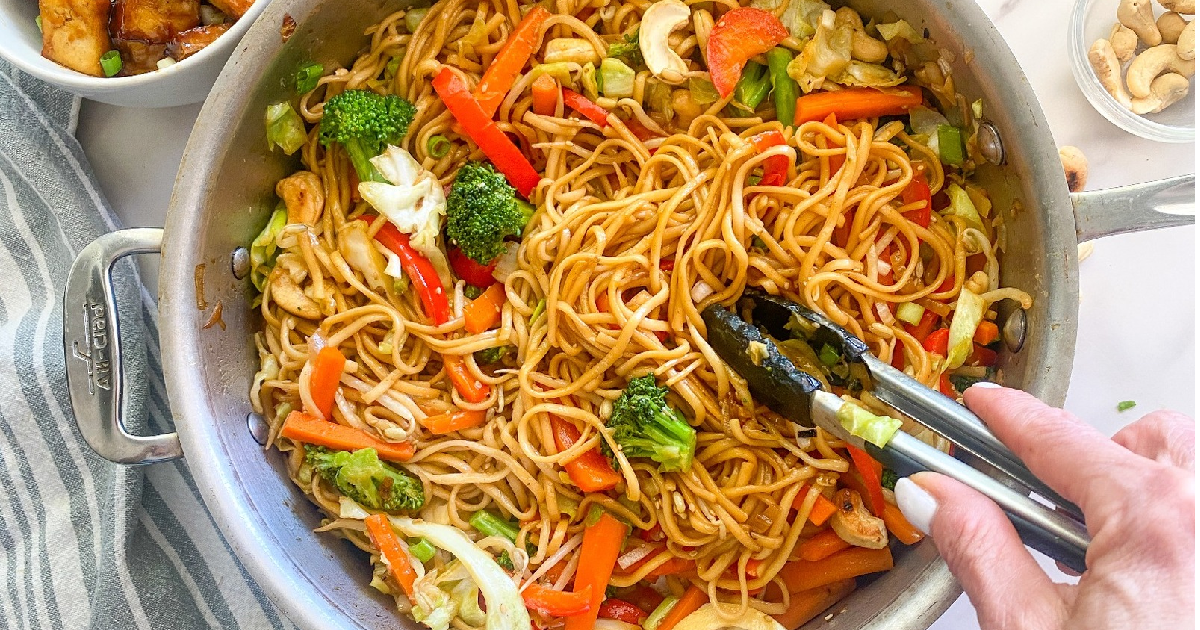
Super Noodles Chow Mein is a popular quick meal option, but for those following a vegan diet, it’s crucial to determine if the ingredients are suitable. Analyzing the ingredients for vegan compliance is essential to ensure the product aligns with vegan dietary standards.
Ingredients in Super Noodles Chow Mein
To determine if Super Noodles Chow Mein is vegan, we must closely examine the ingredients list. The primary ingredients typically include noodles, flavorings, and various additives. The noodles are often made from wheat flour, but they may also contain eggs that are not vegan-friendly.
Flavoring packets in these products can be particularly problematic. They often include animal products like chicken fat, beef extract, or fish sauce. Some flavorings might also contain dairy derivatives such as lactose or whey, which are non-vegan ingredients. It’s essential to read the packaging carefully to identify hidden animal products.
A detailed analysis of the ingredients reveals whether or not they comply with vegan standards. A product is not vegan if any of its listed ingredients are derived from animals. Consumers should be vigilant about ingredients such as “natural flavors,” which can sometimes be animal-derived unless specified otherwise.
Here’s a summary table for typical non-vegan ingredients to look out for:
| Ingredient | Common Non-Vegan Additives | Vegan Status |
|---|---|---|
| Noodles | Wheat flour, egg | Non-vegan if egg is included |
| Flavoring Packets | Chicken fat, beef extract, fish sauce | Non-vegan |
| Dairy Derivatives | Lactose, whey | Non-vegan |
Vegan Alternatives to Super Noodles
For those seeking vegan-friendly noodle products, there are several alternatives to Super Noodles Chow Mein. Many brands offer vegan noodle dishes that are both convenient and delicious. These products typically use plant-based noodles and seasonings free from animal products.
One excellent alternative is Annie Chun’s Rice Noodles, made from rice flour and water, ensuring they are vegan. These noodles come with various vegan-friendly sauces, making them an excellent option for quick meals. Another reliable brand is Lotus Foods, which offers a range of rice and millet noodles that are entirely plant-based.
For a more authentic chow mein experience, Dr. McDougall’s Right Foods offers vegan noodle cups replicating traditional flavors without animal products. These convenient products provide a satisfying meal that adheres to vegan principles.
Here’s a table summarizing some recommended vegan noodle brands:
| Brand | Product Name | Vegan Status |
|---|---|---|
| Annie Chun’s | Rice Noodles | Vegan |
| Lotus Foods | Rice & Millet Noodles | Vegan |
| Dr. McDougall’s | Right Foods Vegan Noodle Cups | Vegan |
Selecting vegan-friendly products ensures you can enjoy convenient noodle dishes without compromising your dietary choices. By choosing these alternatives, you support ethical food practices and enjoy delicious meals that fit within a vegan lifestyle.
Understanding the ingredients and available alternatives allows you to make informed decisions about your food choices, ensuring that your diet remains consistent with your values. This approach promotes the consumption of vegan Chinese food, broadening your culinary horizons while adhering to ethical standards.
Conclusion
In conclusion, making chow mein vegan is possible and opens up a world of culinary creativity and enjoyment. You can transform this beloved Chinese dish into a vegan-friendly delight by substituting animal products with plant-based alternatives. The key lies in selecting the right chow mein ingredients, such as plant-based noodles and vegan chow mein sauce ingredients, to ensure the dish aligns with your dietary values.
Exploring vegan Chinese food goes beyond just chow mein. It invites you to discover a plethora of vegan-friendly Chinese recipes and vegetarian chow mein alternatives that offer rich flavors and nutritional benefits. By experimenting with different ingredients and cooking techniques, you can create dishes that are both delicious and ethically satisfying.
As you delve into the world of vegan Chinese cuisine, consider the broader implications of your food choices. Embracing a plant-based diet benefits your health and supports a more sustainable and compassionate food system. Every vegan meal you prepare and enjoy contributes to a positive impact on the environment and animal welfare.
So, the next time you crave a comforting bowl of chow mein, remember that vegan options are abundant and accessible. Challenge yourself to try new recipes and ingredients, and share your culinary discoveries with others. Together, we can celebrate the diversity and richness of vegan Chinese food, fostering a community that values health, flavor, and ethical eating.
Let your meals reflect your commitment to a kinder, more sustainable planet in a world where our choices shape the future. By embracing veganism, you’re not just making a dietary choice—you’re making a statement about the kind of world you want to live in. Enjoy your vegan chow mein, and savor the knowledge that every bite contributes to a brighter, more compassionate future.
FAQs
1. Is traditional chow mein sauce vegan?
Traditional chow mein sauce often includes soy sauce, oyster sauce, and sometimes fish sauce. While soy sauce is typically vegan, oyster and fish sauce are not, as they are derived from oysters and fish. You can substitute a vegan chow mein sauce with mushroom sauce or hoisin sauce, providing a similar umami flavor without animal products.
2. Can vegans eat any type of noodles in chow mein?
Not all noodles used in chow mein are vegan. Traditional chow mein noodles often contain eggs, making them unsuitable for vegans. However, plenty of plant-based noodles are available, such as rice noodles, soba noodles, and egg-free wheat noodles, which are perfect for vegan noodle dishes. Always check the ingredient list to ensure the noodles do not contain any animal products.
3. What are some vegetarian chow mein alternatives?
Vegetarian chow mein alternatives can easily be made vegan by removing any animal-derived ingredients. Popular options include tofu chow mein, where tofu replaces meat, and vegetable chow mein, which focuses on a variety of fresh vegetables. By using plant-based noodles and vegan sauces, these vegetarian alternatives can also be enjoyed by vegans.
4. How do I ensure my chow mein is vegan when ordering at a restaurant?
To ensure your chow mein is vegan when dining out, communicate your dietary preferences clearly with the restaurant staff. Ask if the noodles contain eggs and request egg-free noodles if available. Specify that you do not want any meat, fish sauce, or oyster sauce in your dish. Request vegetable-based sauces like soy sauce or hoisin sauce instead. Most restaurants are accommodating and can modify the dish to meet your vegan needs.
5. Are there any quick vegan chow mein recipes?
Yes, there are many quick vegan chow mein recipes available. Here’s a simple one:
Quick Vegan Chow Mein Recipe:
- Ingredients:
- 8 oz rice noodles or egg-free wheat noodles
- 1 cup broccoli florets
- 1 cup bell peppers, sliced
- 1 cup snap peas
- 1 block firm tofu, cubed
- 1/4 cup soy sauce
- 2 tbsp mushroom sauce
- 1 tbsp hoisin sauce
- 1 tsp sesame oil
- 1 clove garlic, minced
- 1 tsp grated ginger
- 2 tbsp vegetable oil
- Instructions:
- Cook the noodles according to package instructions and set aside.
- In a large pan, heat the vegetable oil over medium-high heat. Add the tofu and cook until golden brown.
- Add the garlic and ginger, and sauté for a minute until fragrant.
- Add the broccoli, bell peppers, and snap peas. Stir-fry for 5-7 minutes until vegetables are tender.
- mix soy sauce, mushroom sauce, hoisin sauce, and sesame oil in a small bowl.
- Add the cooked noodles and sauce mixture to the pan. Toss everything together until well coated and heated through.
- Serve hot, and enjoy your quick and delicious vegan chow mein!
This recipe is a great starting point; you can customize it with your favorite vegetables and plant-based proteins.


